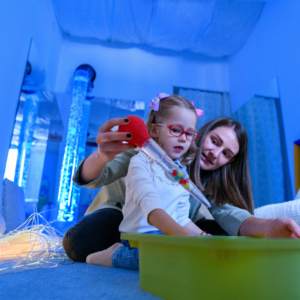One of the most important decisions you will ever make for your child is selecting the best autism support programme for them. The right program can significantly enhance your child’s development, helping them to harness their unique strengths and navigate the world more effectively. The path to discovering the ideal fit isn’t simple, though. Parents frequently encounter a wide range of difficulties, from comprehending the various strategies that are available to determining what environment is best for their child’s individual needs. Furthermore, there is the practical weight of location, cost, and suitability for your family’s lifestyle, together with the emotional weight of wanting the best for your child. Here we will discuss these concerns and lay the groundwork for a more comprehensive look when making this important decision.
By the end of this guide, you will be equipped not just with practical tips but with the confidence to make informed decisions that pave the way for your child’s growth and development.
Understanding Your Child’s Needs
Understanding the specific needs of a child with autism is foundational when choosing the right support program. . Every autistic child has different talents, difficulties, and ways of relating to the outside world. There is no one-size-fits-all approach because of this variety; what works well for one youngster may not be as helpful for another. Recognising and articulating your child’s specific needs—from communication styles to sensory sensitivities—will guide you in selecting a program that aligns best with their personal development path. This tailored approach ensures that the chosen program not only addresses their areas of challenge but also amplifies their strengths, setting the stage for meaningful progress.
Key Factors to Consider
Program Philosophy and Approach
It’s critical to comprehend a program’s fundamental philosophy and particular therapy approaches:
- Applied Behavior Analysis (ABA): This method has evidence demonstrating its efficacy in assisting autistic children
 in learning new skills and minimising undesirable behaviours. It centres on enhancing particular behaviours through methodical interventions. Many autistic adults have raised concerns about its application, therefore always consider how the therapy is implemented and ensure it aligns with the child’s comfort and well-being.
in learning new skills and minimising undesirable behaviours. It centres on enhancing particular behaviours through methodical interventions. Many autistic adults have raised concerns about its application, therefore always consider how the therapy is implemented and ensure it aligns with the child’s comfort and well-being. - Relationship Development Intervention (RDI): RDI works by strengthening the dynamic communication between the child and caregiver, focusing on building emotional and social skills that are vital for meaningful interactions.
- The RISE Approach: Stands out by offering a more holistic perspective, aiming to integrate all areas of a child’s development. This method looks beyond mere behavior management to encompass cognitive, social, and emotional growth, promoting a more rounded development.
Advantages of a holistic approach like RISE:
This approach facilitates a more integrated development process, ensuring that interventions cater to the child’s broad needs, which can include communication, social skills, and emotional regulation, fostering a deeper, more substantial impact on the child’s overall abilities.
Staff Qualifications and Experience
The effectiveness of any autism support program largely depends on the expertise and experience of its staff:
- Importance: Trained specialists are able to adapt interventions to meet the unique needs of every child, potentially leading to improved outcomes.
- Questions to Ask: Ask about the staff’s years of experience, educational background, certifications specific to autism therapies, and approach towards ongoing professional growth and development.
Program Structure
The structure of the program plays a fundamental role in its effectiveness:
- Significance: Consistency and predictability are often key to helping children with autism learn and apply new skills effectively.
- Considerations: Check if the program’s routines are structured to provide a stable learning environment while still being flexible enough to adapt to the individual needs of the child.
Family Involvement
Family involvement is essential for the child’s success both within and outside the program:
- Role of Family: Engaged families can reinforce learning and behavioral strategies at home, creating a supportive environment that enhances the therapy’s effectiveness.
- Program Expectations: Look for programs that offer family training sessions, regular updates on the child’s progress, and opportunities for parents to observe and participate in therapy sessions.
Evidence of Success
When evaluating autism support programs for your child, it’s vital to assess how well the program measures and tracks your child’s progress:
- Structured Tracking: Seek out programmes that carefully plan out their activities, with distinct goals meant for leveraging your child’s interests and capabilities. This tailored strategy ensures that learning is successfully incorporated into everyday activities.
- Daily and Monthly Reporting: Make sure that the program uses tracking sheets to document the skills and concepts targeted each day, including your child’s responses and emotional state. Ask if monthly update reports are provided by the program, involving supervisors who work with the therapists to assess progress and make necessary adjustments.
- Review and Adaptation: A good program continually reviews its strategies and adapts its plans based on regular assessments to meet your child’s developmental needs. The ongoing process is essential to maintaining the program’s effectiveness and to ensuring that your child remains engaged and safe.
Choosing a program that commits to such comprehensive tracking and personalized adjustments can significantly enhance the developmental outcomes for your child.
Evaluating a Program
When considering an autism support program for your child, it’s essential to see the program in action. Here are some tips for effectively evaluating a potential program:
- Visit the Program: Arrange an observation of a session, whether it is at home or at the therapy centre. By experiencing the environment first-hand, you can see how the staff interacts with the children and the environment your child will be in.
- Observe a Session: Watching a session can give you insights into the teaching methods used, the interaction between the staff and child, and how well your child is engaged.
- Interact with Staff: Take the opportunity to speak with the therapists and/or educators. Ask about their experiences, training, and strategies they use in challenging situations. The responses you receive can give you an idea of their level of expertise and dedication.
- Note the Environment: Assess whether the environment is structured to be nurturing and supportive while promoting learning.
By following these steps, you will be able to make an informed decision about whether the program fits your child’s needs and if it is the right environment for them to grow and develop.
If you’re exploring effective support strategies for autism, consider our course, “Innovative Autism Support Strategies: The RISE Approach.” This comprehensive training is designed for anyone seeking to deepen their understanding and enhance their skills in supporting autistic individuals. The RISE Approach integrates a holistic view of development, promoting a supportive and inclusive learning environment. For more details and to enroll, click here. Equip yourself with the knowledge to make a real difference in the lives of autistic individuals.
Questions to Ask
Whenever you’re considering an autism support program for your child, it’s important to gather as much information as possible. Here’s a list of essential questions that parents should consider asking:
- What is the program’s philosophy and approach to autism support? Understand the foundational principles that guide their interventions.
- What qualifications and experience do the staff have? It’s important to know the training and background of those who will be working with your child.
- Can I observe a session? The best way to learn about a program and the interaction between staff and children is to observe a session.
- How is progress measured and reported? Learn how children’s achievements and development are assessed and communicated.
- How does the program tailor its approach to individual children? Look for programs that customize their strategies to meet the specific needs of each child.
- What role do parents play in the program? A program that is effective should involve parents and provide them with strategies for reinforcing learning at home.
- What support is available for transitioning out of the program? It can be helpful to understand the support options available to you when planning for your child’s future.
- What are the costs involved? Ensure you understand all costs involved, including any additional fees for materials or special activities.
By asking these questions, you can gain a clearer picture of whether a program will be the right environment for your child’s growth and learning.
Making the Decision
 Choosing the right autism support program for your child involves both emotional and practical considerations. It’s natural to feel a mix of hope and anxiety as you weigh the options. Trusting your parental instincts is crucial; you know your child best and can sense what feels right.
Choosing the right autism support program for your child involves both emotional and practical considerations. It’s natural to feel a mix of hope and anxiety as you weigh the options. Trusting your parental instincts is crucial; you know your child best and can sense what feels right.
Emotional Considerations:
Acknowledge your feelings throughout the process. It’s okay to seek support from friends, family, or support groups to help manage any stress or uncertainty.
Practical Considerations:
Evaluate the information gathered from visits, interactions with staff, and your child’s response to the environment.
Balancing Instincts and Facts:
While emotional responses are important, balance them with objective measures of the program’s effectiveness. Does the evidence suggest it will meet your child’s needs? Are the staff’s qualifications and the program’s outcomes reassuring?
Ultimately, the decision should feel right both intuitively and logically. Trusting your instincts while considering practical outcomes will guide you towards the best choice for your child’s development and happiness.
Conclusion
Choosing the right autism support program is a significant decision that can profoundly impact your child’s development. Remember to consider the program’s philosophy, staff qualifications, structure, family involvement, and evidence of success. Take your time to visit programs, observe sessions, and speak with the staff. Balance your instincts with objective evaluations to ensure the program fits your child’s unique needs.
We’d love to hear your experiences or any questions you might have about selecting the right program for your child. Please share your thoughts in the comments below.
For more detailed information or personalized advice, visit our Contact Us page. If you’re interested in learning more about our therapeutic services using the RISE Approach, please send us an email at [email protected] for more details on how we can specifically help your child. We’re here to support you every step of the way.
